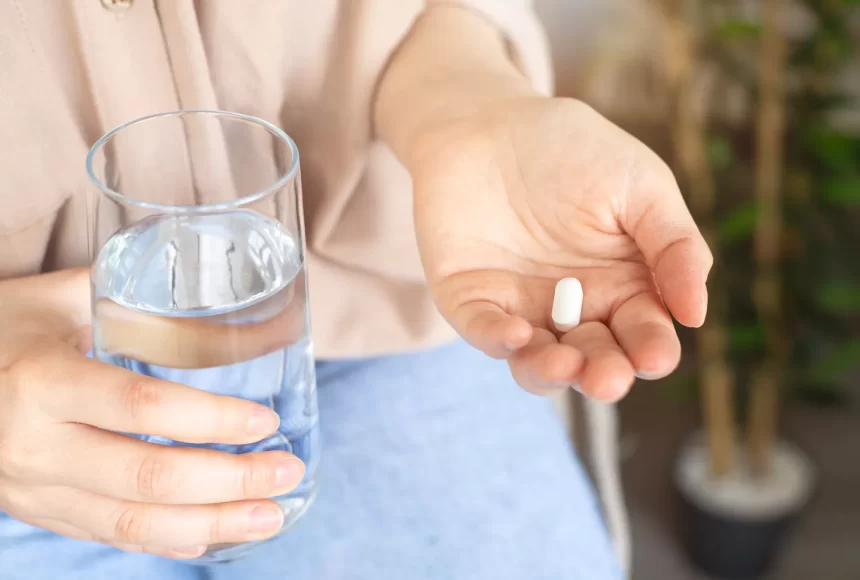You may have heard about zinc’s role in supporting immunity and wondered if you should take a zinc supplement. The possible benefits of zinc include shortening colds, treating acne, and aiding in wound healing.
MedlinePlus. Zinc.
The recommended daily value (DV) for zinc depends on the person but is 8 milligrams (mg) per day for women and 11 mg per day for men. Zinc is required for the activity of more than 300 enzymes in the body. These enzymes aid in a range of essential bodily functions, including digestion, nerve function, and metabolism.
It’s important to get zinc from your diet, including blueberries, eggs, fish, and whole-wheat bread. Supplements may help reach your DV if you are unable to do so. Read on to learn about the benefits of taking zinc supplements.
Treat Zinc Deficiency
About 35% to 45% of adults aged 60 and older have zinc intakes below the estimated average requirement. A zinc deficiency may manifest itself in several ways. Symptoms can include skin problems impaired wound healing. Too little zinc also negatively impacts your senses and appetite.
Research has shown that zinc deficiency increases cell damage caused by free radicals. Free radicals are harmful substances that increase your risk of premature aging and chronic diseases.
A healthcare provider may follow up with questions about your symptoms or order testing if you have risk factors, such as:
- A history of bariatric surgery, which is a type of weight loss surgery
- A vegan diet that’s heavy in legumes and whole grains
- Gastrointestinal (GI) disorders
- Sickle cell disease, which causes red blood cells to become crescent-shaped and burst
Have Been Shown To Shorten Colds
Many people turn to zinc for the short term to combat colds due to its impact on immunity. The research on zinc’s effect on the common cold has been mixed.
A study published in 2017 found that people with a cold who took zinc lozenges recovered faster than those who did not. About 70% of the people who took zinc had recovered after five days compared to 27% of those who took placebos.
Research has found that zinc acetate lozenges have no impact on the recovery rate of people with a cold.8 Consult a healthcare provider about the form, dose, and length of use if you try zinc when you feel a cold coming on.
Help Treat Acne
Clogged sebum (oil) glands, bacteria, and inflammation contribute to acne, which is the most common skin condition. Some evidence suggests that oral and topical zinc supplements can treat acne. The supplements decrease inflammation, protect against bacteria growth, and reduce oil gland activity.
Improves Sexual Health
Oral zinc supplements might improve sexual health concerns in men, but more research is needed. Low zinc levels have been linked to delayed sexual development and fertility problems. Too much zinc, in contrast, may damage sperm.
May Prevent Age-Related Macular Degeneration
Age-related macular degeneration is an eye disease that results in vision loss as you age. Zinc is essential for eye health and helps prevent damage to the retina. This might delay vision loss, but more research is needed.
May Treat Diarrhea
Oral zinc supplements can shorten the duration and reduce the severity of diarrhea in malnourished children. The recommended dose of zinc to treat diarrhea is 5–20 mg.
Promotes Wound Healing
Another significant role of zinc is in helping the body heal. About 5% of your body’s total zinc content is found in the skin. Zinc aids in cell membrane repair, cell growth, and the maintenance of healthy skin. Zinc-dependent proteins play essential roles within cells, including DNA repair.
Some evidence suggests that zinc can speed wound healing in some people. A study published in 2017 found that 50 mg of zinc per day helped reduce foot ulcers in people with diabetes.
Reduces Inflammation
Zinc reduces blood markers for inflammation, a known trigger of premature aging and chronic diseases. The mineral works by decreasing oxidative stress, which increases inflammation.
Prasad AS. Zinc is an antioxidant and anti-inflammatory agent: Its role in human health. Front Nutr. 2014;1:14. doi:10.3389/fnut.2014.00014 Oxidative stress can lead to inflammation that’s linked to heart disease, cancer, and age-related cognitive decline.
Good Sources of Zinc
Zinc is readily found in both animal and plant-based foods, such as:
- Beef, pork, and turkey breast
- Blue crab, oysters, sardines, and shrimp
- Blueberries
- Broccoli
- Eggs
- Greek yogurt and milk
- Kidney beans and lentils
- Peanuts and pumpkin seeds
- Rice
- Whole-wheat bread
Even vegetarians and vegans can eat enough zinc. Adult vegetarians have zinc intakes within the normal range. An adult’s body can adapt to a vegetarian diet in ways that help optimize zinc status. The body may develop an increased absorption and retention of zinc.
How To Take Zinc
There are numerous zinc supplements, such as zinc gluconate, picolinate, acetate, and citrate. Zinc also exists in various forms, including gels, lotions, mouth rinses, ointments, and oral supplements. These products are typically taken by mouth or applied to the skin.


